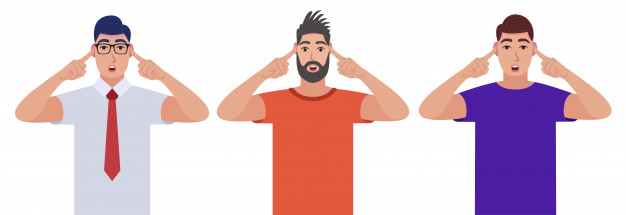Everything from our first kiss to our first apartment are moments that fill us with both joy and angst. Joy tends to make sense in these moments, since these are new experiences. However, why is it that we simultaneously experience angst? What is it within us that responds to novelty as something to fear? Can we change it?
Prom nights, getting married, having our first kid, missing our first car payment and a whole laundry list of both good and bad things that could happen to us have the potential to send us into an existential spiral. But, why?
What does it mean to experience angst? we know the word, we use it, but what does it actually mean? Well, the basic dictionary definition is the following: “Angst means fear or anxiety. ….angst is a feeling of anxiety, apprehension, or insecurity.” Angst is that knot in our stomach that seems to show up out of nowhere. Whether it be our first standup gig or our first day on the job as a boss, we seem haunted by a whole host of fears, outcomes and doubts about our ability to follow through.
We don’t think we’re capable. We end up believing that these new experience might expose us as frauds. We dread failure. We have those really uncomfortable dreams where we find ourselves naked in a clothing store. We’re just not sure they made the right decision in choosing us. All of these are examples of the aggressive whispers that shout between our ears. But, there is a lo more to angst that we need to understand if we’re going to shed some light on this unwanted stranger that shows up in our heads.
Angst is a form of fear — they are directly related. But, it arises out of the desire to be free. Out of the desire to flex our agency by making decisions. We both love and fear our ability to choose what we want. Angst is the negative side of this choosing equation that steers us away from making mistakes. In fact, it goes further then that a create visualizations in our head about how bad our decision making could be if we get it wrong. Neuroscience claims that angst is even worse then a typical experience of fear.
“Anyone who has spent a sleepless night anguishing over a possible job loss has experienced the central finding of a new brain scan study: Uncertainty makes a bad event feel even worse…The insula and the amygdala both responded more strongly to (an) actual aversive picture if it was preceded by the question mark. Interestingly, those brain areas brain responded less strongly to aversive pictures if they received a cue warning that the disturbing picture was coming…if we can reduce people’s feelings of uncertainty, we can reduce their anxiety and their response to bad experiences,”
If we know ahead of time that we’re going to lose our job, get a divorce, or miss out on an event we’ve been waiting for — we can circumvent angst. But, we all know that even if technology catches up and is able to empower us with emotional awareness, that our environment is not systematic — there will always be moments out of our control.
UNDERSTANDING OUR BRAIN ON ANGST
Regions of the amygdala (our ‘fear center’) are involved in anticipation of negative events. Chronic anticipation of negative events leads to what we call allostatic load, or arousal pathology. Two hormones appear to be involved in arousal pathology; corticotropin-releasing hormone in the brain and glucocorticoids. The first one releases adrenaline – getting us ready for a fight-or-flight moment, the second one is attempting to calm us down – hence, why we feel angst; we know something threatening might happen, but we don’t know how to deal with it. So, holding those two emotions in tension produces the feeling of angst. By the way, holding these emotions in tensions for a long time can lead to depression and powerlessness.
However, we must interject something else here — that feeling of paradoxical control over our environment vs. having no control is something we all feel more often than not — what drives the intensity of this feeling is making the assumption that we are somehow meant to never experience angst, sadness, depression or even powerless. All of these feelings are meant to be felt — its what makes us human. We need to normalize this across society.
There is something to be said here about the importance of angst as it relates to being human in the world. Martin Heidegger, the German philosopher once made the claim that the reason why we feel angst is because we don’t really believe that we fit in – that there are a lot of issues that drive our angst like our mortality, individuality and living in the world with others. As if to say, that angst is a feeling we all feel to remind us that we are not alone, and that others feel the same angst we do.
This has major implications on how we act in the world – whether we are bosses, spouses, children, or otherwise. Angst essentially drives us either toward or away from one another. It depends upon how we frame the feelings when they arise.
Evolutionary psychology claims that angst has the potential to evolve from being hypervigilant about threats in our environment to a pathology about how we are meant to act in the world. “The capacity for concealment of anxiety and other forms of negative affect has also evolved, and excessive concealment may lead to psychopathology by breaking the negative feedback loop of excessive motivation, leading to impaired performance, leading to signals of distress, and leading to reduced exhortation to succeed…”.
Ultimately, angst has emerged as part of our emotional palette to help us conceal anxiety. It’s a way for us to present ourselves as confident in a group context. But, to do so, is to our own detriment. As we can see from the long list, when psychopathologies arise they can transform into much more integrated forms of depression that keeps us from ever fulfilling any of our goals. Angst disempowers us from ever believing we are capable. It’s key that we get this emotional experience under control.
Affective forecasting is a bias we all use, usually so we can attempt to control our emotional experience with a future event. “One of the most common sources of error in affective forecasting across various populations and situations is the impact bias, the tendency to overestimate the emotional impact of a future event, whether in terms of intensity or duration. The tendencies to overestimate intensity and duration are both robust and reliable errors found in affective forecasting.”
Research has followed a few people who assumed that winning the lottery would change their lives forever — some time after the winners exhausted their income, their lives remained the same. They had thought their intense joy would sustain itself in the long term – that their happiness would change everything, but this was not the case. But, can we use affective forecasting to help us with angst? In a word: Yes.
If we take the idea of investing our emotions into a future scenario that might bring us angst, we can begin reducing the negative feedback loop of feeling like we can never escape it. We can use affective forecasting to help us imagine better emotional responses to events that make us feel emotionally out of control. In fact, sports teams have used this same exact strategy to invoke feelings of confidence — and in some cases that contributed to the team winning their games. Angst is here to remind us that its okay not to be in control. That, uncertainty doesn’t have to be the worst thing ever.
REFRAMING IS KEY HERE.
In behavioral science we refer to this technique as cognitive framing. This is the opportunity to reframe concepts to help us understand ideas in new and novel ways. In this context, reframing angst as mystery, adventure or opportunity has been shown to reduce the mental health impact after-effects of dealing with uncertainty. We need to simultaneously demystify angst and romanticize uncertainty as curiosity coupled with adventurous mystery. This is when we actively begin to take our minds and lives back.







Read 0 comments and reply